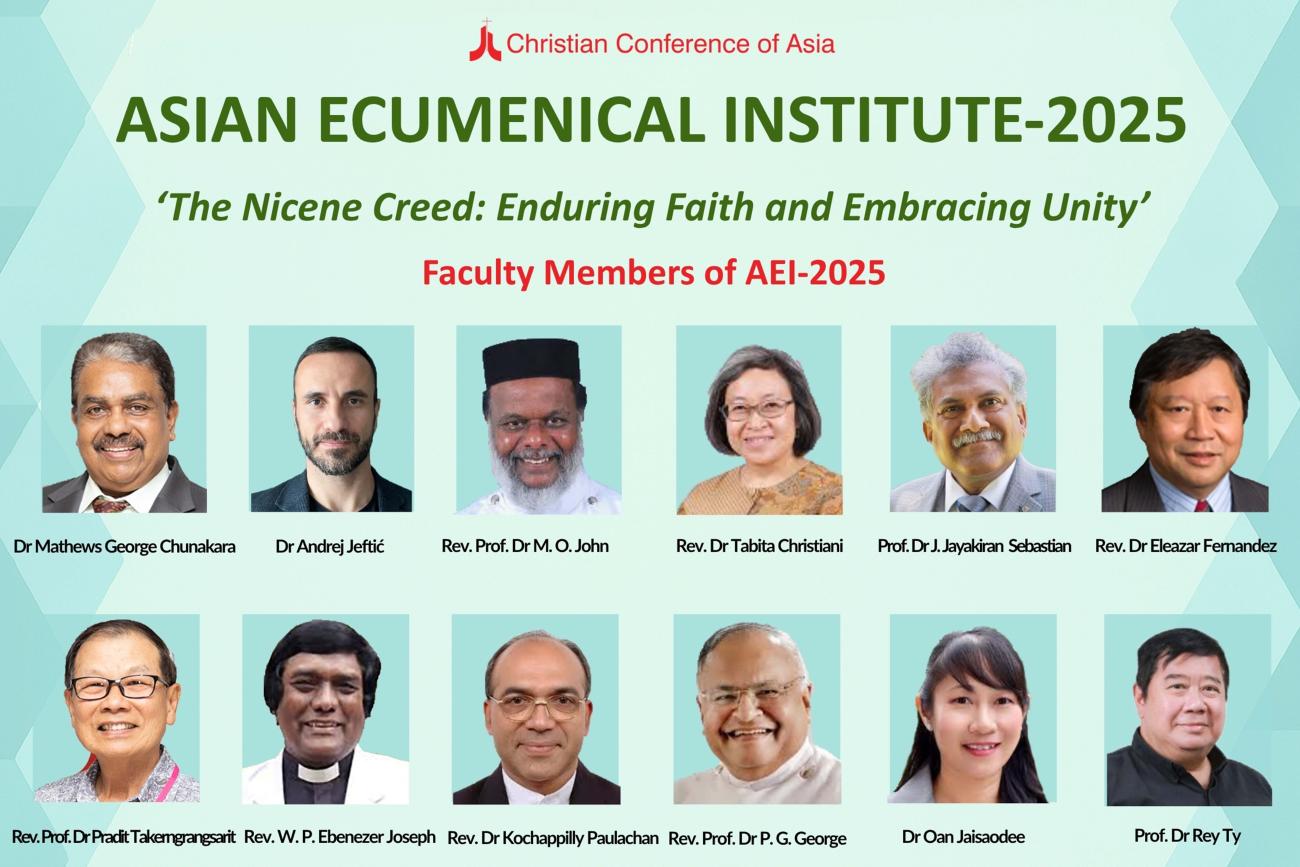Asian Ecumenical Institute-2025, month-long leadership development training set to commence

Chiang Mai, Thailand: The Asian Ecumenical Institute (AEI), the annual month-long ecumenical training programme for prospective church and ecumenical leaders organised by the Christian Conference of Asia (CCA), is set to commence from 4 August 2025.
AEI–2025 will be held at the CCA headquarters located on the campus of Payap University in Chiang Mai, Thailand. This year, twenty-five participants from across Asia have been selected to take part in the programme.
The main theme of AEI-2025 is “The Nicene Creed: Enduring Faith and Embracing Unity.” The emphasis will be on nurturing a spirit of unity that transcends theological differences and cultural diversity.
As Christians around the world mark 2025 as the 1700th anniversary of the First Council of Nicaea, AEI–2025 will focus on reflecting on the foundations of the Nicene Creed and affirming faith in the Triune God.
The academic sessions will explore a wide range of related themes, including “Reflection on the Nicene Creed”; “The Nicene Creed – Its Ecumenical Significance Today”; “Visible Unity as a Sign of God’s Healing Love”; “The Nicene Creed Towards Wider Ecclesial Unity and Wider Ecumenism”; “The Nicene Creed and Its Impact on the Life and Witness of Christian Communities in Asia”; “Legacy of the Council of Nicaea: Revitalising the Ecumenical Movement”; “Power of Unity in Diversity”; “Unity in a Polarised and Fragmented World”; “Healing a Polarised World: A Call to Unity”; “Our Faith that Endures: Hopes Amid Uncertainty”; “Echoes of the Council of Nicaea: Living Our Unity and Our Struggle for Unity”; “Our Transformative Mission and Witness Towards Unity”; and “Trinitarian Foundation and Our Faith from Diverse Ecclesial Traditions.”
Internationally acclaimed theologians, biblical scholars, ecumenical leaders, and social scientists will serve as facilitators for the academic sessions.
Resource persons for AEI–2025 include Rev. Dr M. O. John (India), Professor at Orthodox Theological Seminary, Kottayam; Dr Andrej Jeftić (Serbia), Director of the Faith and Order Commission of the World Council of Churches (WCC) in Geneva; Rev. Dr Eleazar Fernandez (Philippines), Professor at United Theological Seminary of the Twin Cities, Minnesota, USA; Rev. Prof. Dr J. Jayakiran Sebastian (USA), Dean and H. George Anderson Professor of Mission and Cultures at the United Lutheran Seminary, USA; Dr Oan Jaisaodee (Thailand), Professor at McGilvary College of Divinity, Payap University; Rev. Prof. Dr P. G. George (India), formerly Director of the South Asia Theological Research Institute of the Senate of Serampore College, Kolkata; Rev. W. P. Ebenezer Joseph (Sri Lanka), Minister and former President of the Methodist Church of Sri Lanka; Rev. Dr Kochappilly Paulachan, CMI (India), Professor at Dharmaram Vidya Kshetram, Bangalore; Rev. Prof. Dr Pradit Takerngrangsarit (Thailand), former President of Payap University and Dean of McGilvary College of Divinity; Prof. Dr Rey Ty (Philippines), Professor at the Institute of Religion, Culture and Peace at Payap University; Rev. Dr Tabita Christiani (Indonesia) of Christian Education at Universitas Kristen Duta Wacana; and Dr Mathews George Chunakara, General Secretary of the CCA.
In addition to the academic sessions, AEI–2025 will include visits to inter-religious centres and opportunities for dialogue with religious leaders. Participants will also take part in workshops on “Living Out Our Faith,” making the programme a holistic experience in ecumenical formation and spiritual reflection.











